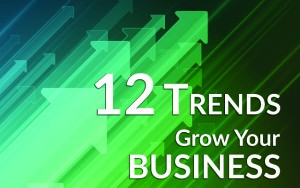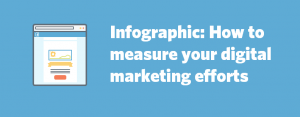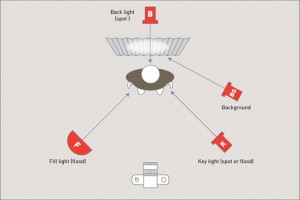![]() by Bernadette Coleman December 2nd, 2014
by Bernadette Coleman December 2nd, 2014
Did you ever hear the story of Ali Baba and the Forty Thieves? The thieves hid a horde of treasure inside a cave, the mouth of which was sealed using magic. Ali Baba, a poor woodcutter, overhears the thieves using the magic phrase, “Open Sesame,” to enter the cave. When they leave, he says the magic words and presto! He’s staring at piles of gold and jewels.
The acronym “POEM” is similar to “Open Sesame” in that it can open a world of content marketing riches for you. It stands for Paid, Owned, Earned Media, and these are the three main channels you should use in a strong content marketing strategy.
Paid Media
Basically, paid media is advertising, although in the digital space there are many more paid avenues than you might realize. Paid media can take the form of a traditional ad in a traditional media outlet such as The New York Times, or a paid ad in a digital-only publication. But it can also take the form of a “boosted” post on Facebook or a “sponsored” tweet on Twitter. Pro and Premium subscriptions to a social networking site like LinkedIn are also paid media, as are purchased newswire and distribution services.
Owned Media
This term refers to the media that an organization, brand or individual owns, such as a company website, a members’ magazine, videos, photographs, email lists, Facebook Pages and any other content items or distributive mechanisms that are owned properties. While you don’t pay yourself to market content through owned media, don’t make the mistake of thinking that these channels are “free.” You or the company incur costs to create and maintain these outlets, so you will want to include those expenses in any ROI calculations.
Earned Media
Somewhat of a misnomer, earned media is a newer term for publicity-the coverage an event, person or item receives from what used to be broadly called “the media.” These days, “the media” mostly refers to big, commercial outlets, many of which are familiar, public companies such as the major television networks and the (remaining) metro newspapers. You can, however, get earned media attention from the many non-traditional, mostly commercial, mostly digital media outlets that have sprung up in the last several years. “Earned” is now the preferred term (rather than “free”) because content creators maintain that they have earned the publicity by creating newsworthy content.
Using POEM Strategically
So why is POEM a magic term? Because when marketers use these three channels in strategic combination, their content has better chances of being seen and consumed by more people in the target audiences. Even large corporations that traditionally relied almost exclusively on advertising are beginning to allocate portions of their ad budgets to earned and owned channels.
Take the U.S. automakers as examples. When the 2015-2016 models came out, all of the automakers featured extensive photos of their cars on their owned websites, along with detailed descriptions of options and various pricing packages for purchasing or leasing their vehicles. All of the major models also received ample earned media, such as reviews by important trade and consumer publications. Some of the more innovative models-electric cars, for instance-scored placements in newer, alternative media like Jay Leno’s Garage and the Jalopnik blog. Combined, these earned and owned channels quite likely reached audiences that did not see the automakers’ ads in standard television programs.
Now, not all of us (or even a few of us!) have the big bucks to spend on paid media that the automakers do, but we can take a few hundred dollars to boost key posts on Facebook or add some pizazz to our owned media channels. The key here is to be strategic, boosting content that has already given evidence of performing well. I will cover that topic in a future blog post.
Post from: Search Engine People SEO Blog
POEM – Paid, Owned, Earned Media – The “Open Sesame” of Content Marketing
—
Written by Bernadette Coleman, adviceinteractivegroup.com
The post POEM – Paid, Owned, Earned Media – The “Open Sesame” of Content Marketing appeared first on Search Engine People Blog.
(422)
Report Post




